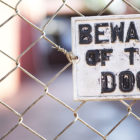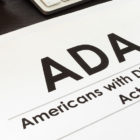
This article is the second part of an earlier article which addressed how board officers should handle their personal and official communications directed to members about association business. Part II of this article addresses how the association should handle unofficial association correspondence between members and the use of various social media platforms, like Twitter or Facebook, by members (non-directors) to discuss association business.
Some people use social media platforms like Twitter or Instagram to post pictures of their adorable sleeping kittens or the jumbo triple chili cheese hot dog they had for lunch. For others, social media platforms like Facebook, or TownSquare, are perfect (cost-effective) tools which can be used by anyone with an active account to unleash their verbal wrath on anyone, or anything, so deserving. Unfortunately, neither the community association nor any of its members are immune from the uninhibited, at times inappropriate, and offensive comments that disgruntled association members post on their social media accounts or in unofficial community Facebook groups that are independently created. While there is little an association can do to prevent someone from posting misinformation or inappropriate comments related to the association, the association’s board and manager should be mindful of the following if placed in this situation.
- No one member has the authority to act or speak on behalf of the association just because they are a member of the association.
A number of concerns arise when an association is confronted with the rogue member who uses social media as a platform for airing their gripes and the “dirty laundry” of the association. More than just reputational damage, an association may worry that certain discriminatory or defamatory comments made by individual members against association vendors (i.e.: management company) or other residents may be attributed to the association and thus expose the association to a defamation claim or discrimination claim under federal or state law. It is important to remember that both the Condominium Act (s. 718.111(1)(c), Fla. Stat.) and the Homeowners Association Act (s. 720.303(1), Fla. Stat.) specifically provide that: “A member does not have authority to act for the association by virtue of being a member.” Additionally, and as further outlined in both statutes as well as in most governing documents, only those acts approved by the board of directors and/or the membership constitute a valid act of the association. In other words, even if a member (or director) says that they represent the views of the association, or are acting on behalf of the association, they do not have unilateral authority to speak for or act on behalf of the association.
- Individual board members should refrain from responding to unofficial correspondence or opinion statements from members on social media.
Naturally, the urge of any board member in this scenario is to “set the record straight” by responding to, or rebuffing, negative statements made against them or the association. However, board members are encouraged to take the “high road” in these circumstances by not engaging in back and forth “Twitter beef” with the individual. Board members should be mindful of their responsibilities and duties as board members and that, to some extent, even their personal actions and words may be construed by a reasonable person as an “official act” of the association dependent upon the circumstances. Additionally, the board should not assume any responsibility for the management or monitoring of unofficial social media sites which are created and operated by individual members of the association.
- Consider a “cease and desist” letter, if necessary.
Depending on the scope and seriousness of the statements being made, the association may consider consulting their legal counsel to issue a cease and desist letter to the individual. It is important to keep in mind that despite the restrictions and covenants governing all members of the association, individuals are still entitled to First Amendment free speech protection under the U.S. Constitution. Nonetheless, the cease and desist letter may be used by the association as evidence demonstrating that the individual member’s statements do not reflect the official act or opinions of the association.


